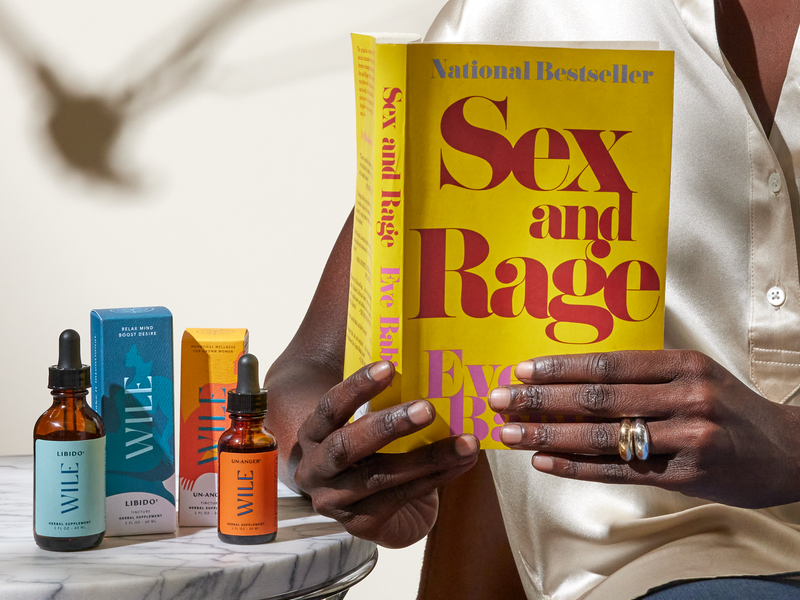Lemon Balm Cheered up the Ancient Greeks. It Can Cheer You up, Too.
Imagine strolling through a citrus grove with a warm breeze brushing your skin and dappled sunlight streaming through the branches.
If your day-to-day life resembles that vignette, we’re sincerely happy for you. For the rest of us, daily mood supplements made with nourishing herbs are here to help us stand up to stressors without losing our cool. This is where lemon balm comes in. With clinically-proven stress-relieving powers (and bonus: a bright citrus scent) lemon balm can invoke serene & sunny energy into everyday life.
From ancient Greece to India, China and the Middle East, lemon balm has been promoting calm and improving mood for millennia. Renaissance-era herbalists theorized that lemon balm’s emotionally uplifting properties came from its relationship to Jupiter and the zodiac sign Cancer. Modern scientists have tied its happiness-enhancing effects to compounds that act on your brain. Whichever explanation you like, lemon balm is great for women’s stress relief.
Why We Love Lemon Balm
- Lemon balm is a nervine, which means that it acts on and nourishes the nervous system for natural stress resistance. You can read more about nervines here and the nervous system here.
- Lemon balm is incredibly easy to grow. If you have a spare planter or a bit of space for an herb garden, try planting your own lemon balm. We’re not the only fans of lemon balm — Bees and other pollinators love it so much that the scientific name for lemon balm, Melissa, comes from the Greek word for honeybee.
Key Benefits:
Stress Relief - Lemon balm provides excellent women’s stress relief. It increases levels of a brain chemical called GABA, which in turn keeps neurons from getting overexcited and stabilizes mood. Our Wile Women’s Stress supplements are formulated with lemon balm and other herbs that build up your stress resistance.
Mood Boost - Lemon balm has a long tradition of use as a mood enhancer, and research is catching up to traditional knowledge. Clinical trials have found that lemon balm reduces occasional anxiety and depression symptoms better than placebo treatment. Some studies have also found similarities between the effects of lemon balm and popular pharmaceutical antidepressants.
Improves Sleep and Reduces Sleep Disruptions - Studies on midlife women with sleep issues found that lemon balm reduced sleep disturbances significantly more than a placebo. One study even found that 85% of subjects reported full remission from insomnia. Since many of the sleep challenges of midlife are interrupted sleep, this is a very good thing for us.
Traditional Uses:
Lemon balm use goes back at least to ancient Greece, where it was steeped in wine and served as a sedative and mood enhancer. Saint Hildegard of Bingen, a medieval artist, musician, scientist and nun, praised this herb and wrote that “lemon balm contains within it the virtues of a dozen other plants.” It was also used to treat venomous bites and stings.
Medieval scientists and physicians in the Middle East identified lemon balm as a cure for:
- Stress
- Insomnia
- Indigestion
- Poor appetite
Lemon balm is also used to enhance calm in Traditional Chinese Medicine and Ayurveda.
About Lemon Balm:
Lemon balm is native to Europe and Central Asia, but it has spread across the globe and grows freely across much of North America. It has bright green leaves with serrated edges and tiny light yellow flowers. As the name suggests, lemon balm smells like lemons, but it’s actually part of the mint family.
Found In (Wile Products)
Things to Know about Lemon Balm:
Some thyroid medications, HIV treatments and sedatives may interact with lemon balm. If you use these kinds of medications, speak with your doctor before taking lemon balm.
Lemon balm is considered generally safe for pregnancy and breastfeeding when consumed in moderation and in food preparations. To be on the safe side, consult your doctor before adding lemon balm to your diet or your supplement regimen if you’re pregnant or breastfeeding.
Clinical Research
- Araj-Khodaei, Mostafa, Ahmad Ali Noorbala, Reza Yarani, Fatemeh Emadi, Elham Emaratkar, Soghrat Faghihzadeh, Zahra Parsian, Fatemeh Alijaniha, Mohammad Kamalinejad, and Mohsen Naseri. “A Double-Blind, Randomized Pilot Study for Comparison of Melissa Officinalis L. and Lavandula Angustifolia Mill. with Fluoxetine for the Treatment of Depression.” BMC Complementary Medicine and Therapies 20, no. 1 (July 3, 2020). https://doi.org/10.1186/s12906-020-03003-5.
- Cases, Julien, Alvin Ibarra, Nicolas Feuillère, Marc Roller, and Samir Giuseppe Sukkar. “Pilot Trial of Melissa Officinalis L. Leaf Extract in the Treatment of Volunteers Suffering from Mild-to-Moderate Anxiety Disorders and Sleep Disturbances.” Mediterranean Journal of Nutrition and Metabolism 4, no. 3 (December 17, 2010): 211–18. https://doi.org/10.1007/s12349-010-0045-4.
- Ghazizadeh, Javid, Saeed Sadigh-Eteghad, Wolfgang Marx, Ali Reza Fakhari, Sanaz Hamedeyazdan, Mohammadali Torbati, Somaiyeh Taheri-Tarighi, Mostafa Araj-Khodaei, and Mojgan Mirghafourvand. “The Effects of Lemon Balm ( Melissa Officinalis L.) on Depression and Anxiety in Clinical Trials: A Systematic Review and Meta‐analysis.” Phytotherapy Research 35, no. 12 (August 27, 2021): 6690–6705. https://doi.org/10.1002/ptr.7252.
- Haybar, Habib, Ahmad Zare Javid, Mohammad Hossein Haghighizadeh, Einollah Valizadeh, Seyede Marjan Mohaghegh, and Assieh Mohammadzadeh. “The Effects of Melissa Officinalis Supplementation on Depression, Anxiety, Stress, and Sleep Disorder in Patients with Chronic Stable Angina.” Clinical Nutrition ESPEN 26 (May 19, 2018): 47–52. https://doi.org/10.1016/j.clnesp.2018.04.015.
- Shakeri, Abolfazl, Amirhossein Sahebkar, and Behjat Javadi. “Melissa Officinalis L. – A Review of Its Traditional Uses, Phytochemistry and Pharmacology.” Journal of Ethnopharmacology 188 (July 21, 2016): 204–28. https://doi.org/10.1016/j.jep.2016.05.010.
- Taavoni, Simin, Neda Nazem Ekbatani, and Hamid Haghani. “Valerian/Lemon Balm Use for Sleep Disorders during Menopause.” Complementary Therapies in Clinical Practice 19, no. 4 (November 1, 2013): 193–96. https://doi.org/10.1016/j.ctcp.2013.07.002.
Sources
- Gluck, Sam. “De-Stress with Lemon Balm - Marion Gluck.” Marion Gluck, November 6, 2019. https://www.mariongluckclinic.com/blog/chilling-out-with-lemon-balm.html#:~:text=Lemon%20balm%20significantly%20reduces%20excitatory,GABA%20available%20in%20the%20brain.
- “LEMON BALM: Overview, Uses, Side Effects, Precautions, Interactions, Dosing and Reviews,” n.d. https://www.webmd.com/vitamins/ai/ingredientmono-437/lemon-balm.
- Mountain Rose Herbs. “Lemon Balm,” n.d. https://mountainroseherbs.com/lemon-balm.
- Mount Sinai Health System. “Lemon Balm,” n.d. https://www.mountsinai.org/health-library/herb/lemon-balm.
- Petruzzello, Melissa. “Lemon Balm | Description, Plant, Uses, Herb, & Facts.” Encyclopedia Britannica, September 27, 2021. https://www.britannica.com/plant/lemon-balm.
This article is intended for informational purposes and is not intended to replace a one-on-one medical consultation with a professional. Wile, Inc researches and shares information and advice from our own research and advisors. We encourage every woman to research, ask questions and speak to a trusted health care professional to make her own best decisions.




